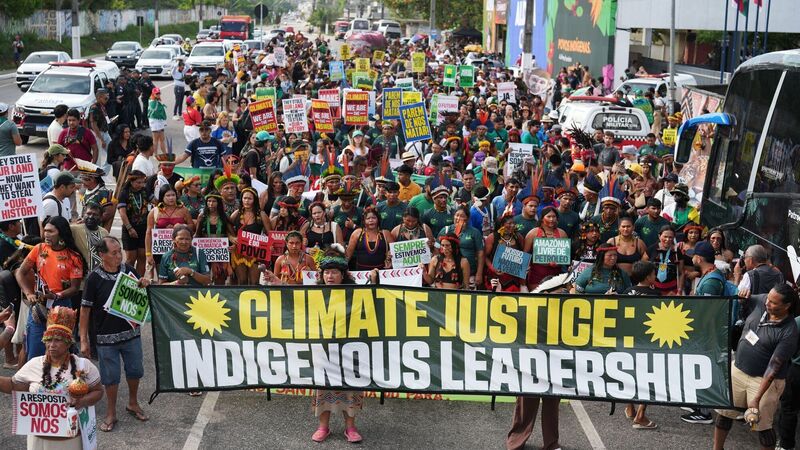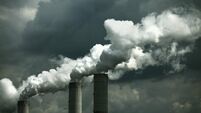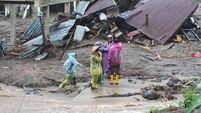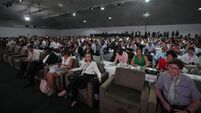Heatwaves will get worse the longer we fail to reach net zero targets, research says

Indigenous peoples protesting for climate justice during the COP30 UN Climate Summit on Monday. Photo: AP/Andre Penner
The planet will continue to be hit by hotter, longer, and more frequent heatwaves if we delay reaching a target of net zero emissions, new research has suggested, as negotiations are due to step up a gear in a crucial week at the UN's Cop30 climate change summit.
The conference in Belem, Brazil, has entered its final week, with talks to place among countries to hammer out a consensus on climate goals.
CLIMATE & SUSTAINABILITY HUB













